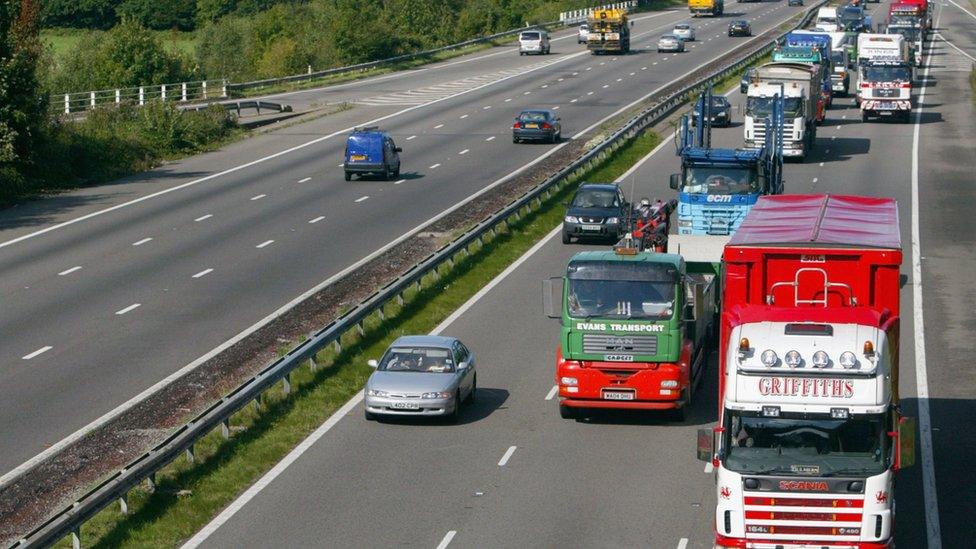Benefits of M4 relief road 'outweighs £1.1bn costs two to one'
- Published
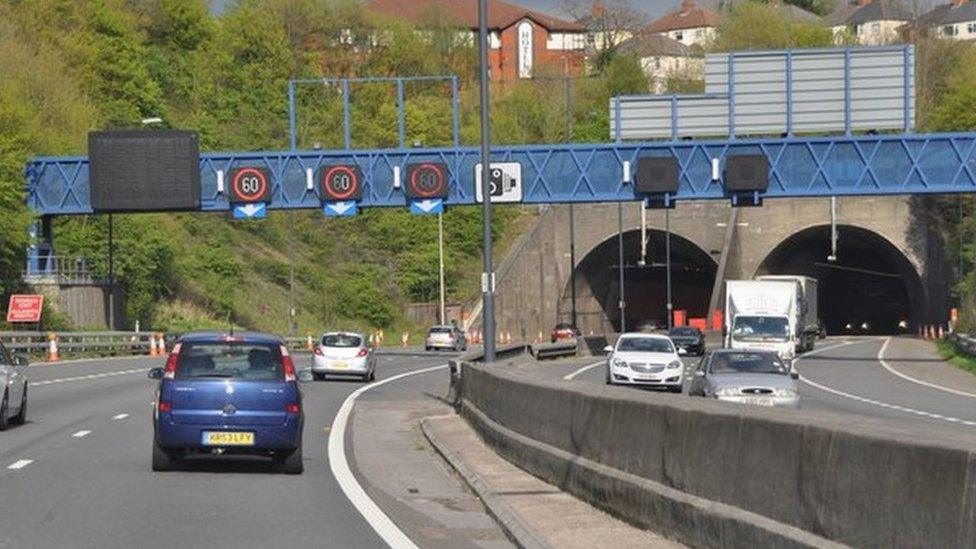
The Welsh Government claims the current M4 around Newport is "not fit for purpose"
The economic benefit of an M4 relief road at Newport will outweigh its £1.1bn cost by two to one, a public inquiry into the proposed road heard.
Economist Stephen Bussell, a Welsh Government witness, said the wider impact of the scheme to Wales and the UK will be £1.17bn above its price tag.
"This indicates the scheme represents value for money," said Mr Bussell.
The Welsh Government wants to build a six-lane motorway south of Newport as the M4 is "not fit for purpose".
Mr Bussell told the inquiry "costs of investment will be more than offset by the improvements in transport economic efficiency, safety and carbon emissions".
'20mph' crawl
The inquiry also heard how peak time traffic can crawl as slow as 20mph along the current M4 to the north of Newport and a data shows an incident, an accident or breakdown, occurs on Wales' busiest stretch of road every four to five days.

The M4 relief road key points:
The Welsh Government wants to build a £1.1bn six-lane motorway to the south of Newport.
The 14.23m (23km) highway will be between the current M4 junction 23A at Magor to junction 29 near Castleton.
The Welsh Government plans to begin construction in 2018 and open the new road in 2021.
The Welsh Government said the current M4 around Newport, opened in 1967, "does not meet modern motorway design standards".
Environmental campaigners and local residents claim the scheme will devastate the ancient marshlands of the Gwent Levels and four sites of special scientific interest.
There have been 335 formal objections, compared to 192 letters of support.
A public local inquiry started on Tuesday and is expected to last five months.

The Welsh Government says a new motorway will boost the economy and Mr Bussell said: "Even before the effects of traffic incidents and atypical delays are considered, cost savings for businesses in the study area (of south Wales and the Bristol area ) are estimated to in the region of £30m per annum by 2037.
"Businesses in South Wales will be the main beneficiaries, receiving £24m of cost savings per annum.
"Traffic incidents can exacerbate delays and cause disruption to businesses and other users, resulting in poor journey time reliability.
"Given the reliance on the M4, any disruption to the smooth operation of the motorway in South Wales imposes costs on individuals and businesses and has a negative impact on the economy as a whole."
Wales is also at the bottom of a UK table measuring the strength of the economy.
But Mr Bussell forecasts the new highway is expected to deliver a higher Gross Value Added, external of £81m per annum by 2037 or £1.6bn over 60 years - or £66m a year by 2037 or £1.3bn over 60 years in south Wales specifically.
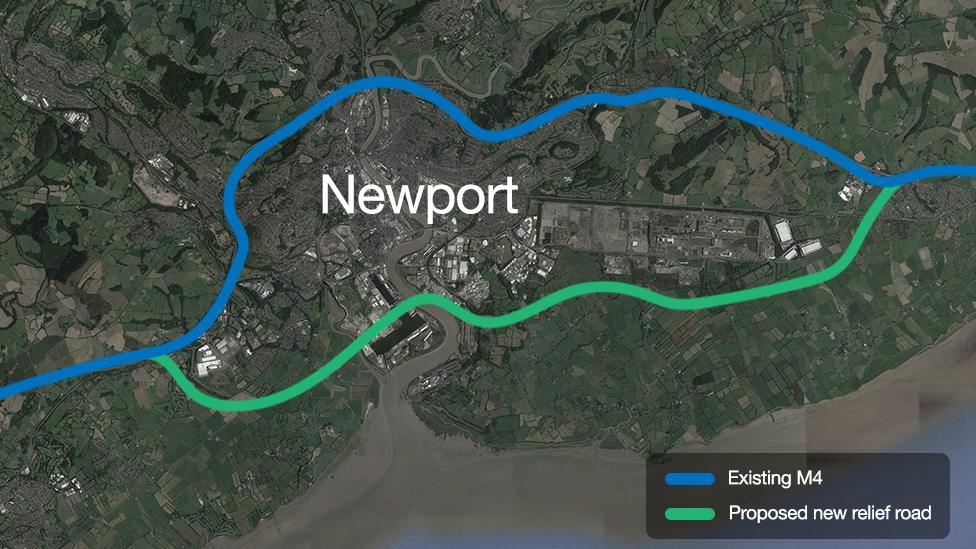
"In large part, Wales' poor relative economic performance is explained by a longstanding 'productivity gap' between Wales and the UK average," he said.
"Research commissioned by the Welsh Government indicates that improved transport infrastructure has a role to play in reducing the productivity gap, both in respect of intra-regional transport and by improving connectivity between Wales and other UK regions, particularly London."
Traffic consultant Bryan Whittaker, the Welsh Government's first expert witness, studied traffic data which found that average speeds were "significantly below" 50mph (80km/h) for the vast majority of Fridays in 2015 and on "a number of occasions" were below 30mph (48 km/h).
He told the inquiry this suggested "it is at or is reaching capacity".
He also said the current M4 around the Brynglas Tunnels bottleneck has a "higher prevalence of incidents" - such as accidents to breakdowns - than any other part of the motorway network he has "witnessed in my 38 years of professional experience".
'Rising traffic'
Opponents claim car use is declining but he told the inquiry latest Department for Transport figures show "record numbers" of vehicle travel.
Mr Whittaker added traffic growth on the M4 around Newport has risen between 9% to 11% over the last four years, compared to the 6% Welsh average - peaking at 117,848 vehicles a day in 2016.
This video reveals the possible route of the M4 relief road
His evidence also stated: "The inability to accurately predict journey times due to congestion can result in wasted time as individuals either arrive late for appointments or arrive early by allowing too much time for their journey. "
Critics say that an improved M4 could lead the skilled workforce leaving Wales to work in England but Mr Bussell rejected those suggestions.
"If they took that approach, the Welsh Government would look for protectionist measures like lobbying for higher tolls on the Severn Crossings or attempting to make the current M4 more clogged.
He added: "In practice the scheme will also improve journey time reliability which will result in further cost savings and efficiency benefits for businesses.
"It would enable improved interaction between businesses across the study area and would widen the effective pool of labour and skills available to firms.
"Although more difficult to measure, the benefits that the scheme will deliver in improving perceptions of the ease of access to Wales could be felt more widely across the whole of south and south west Wales."
- Published28 February 2017
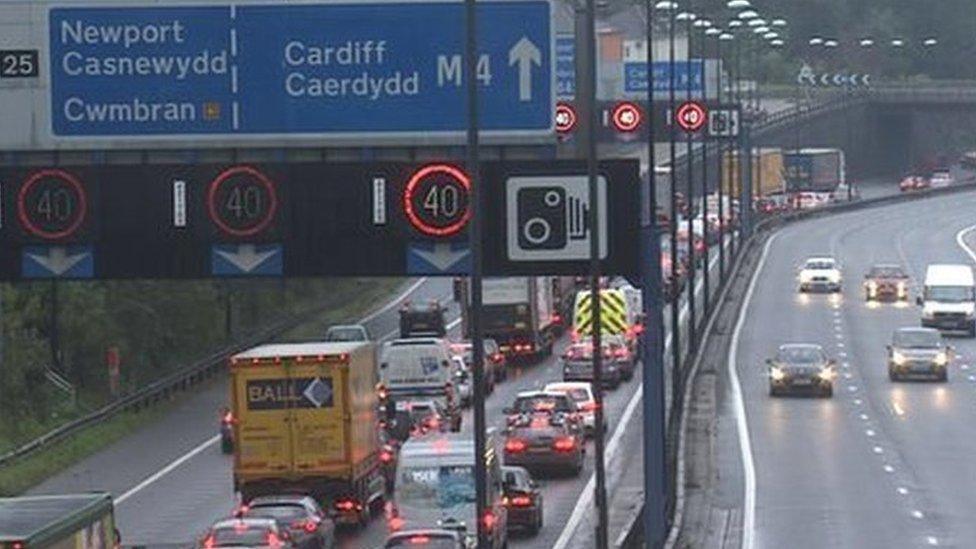
- Published27 February 2017

- Published22 February 2017
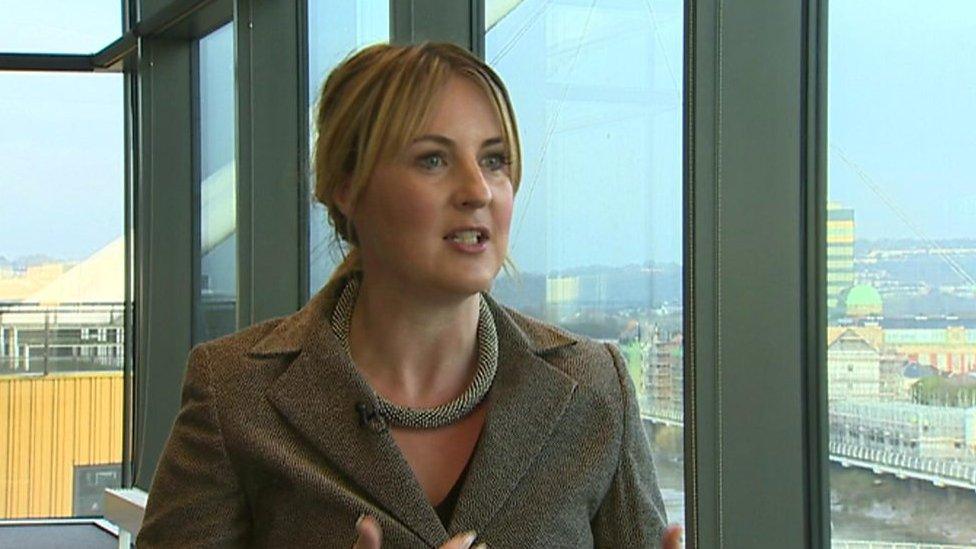
- Published27 January 2017
